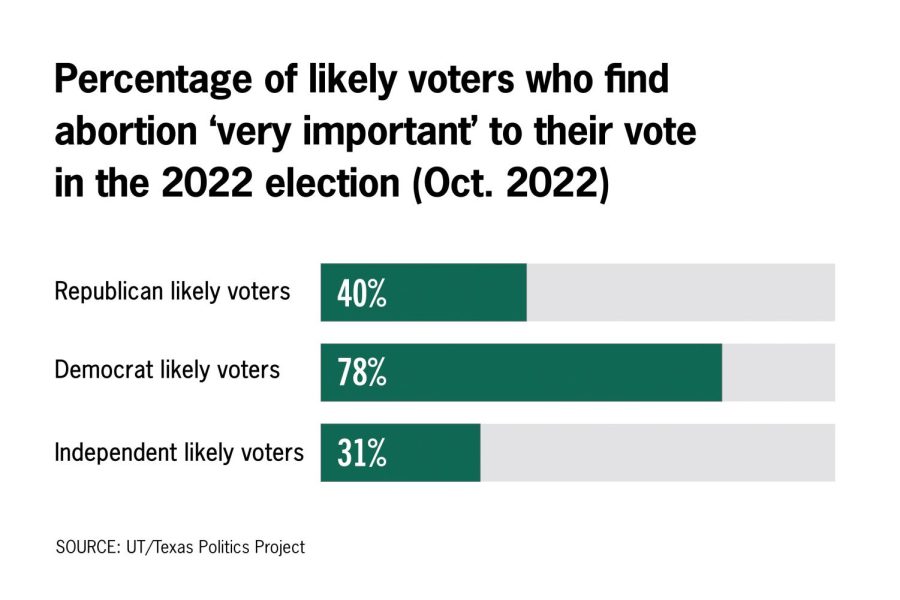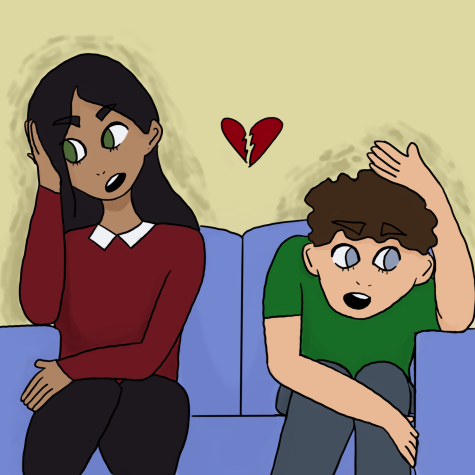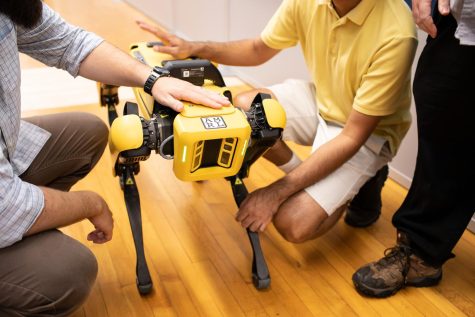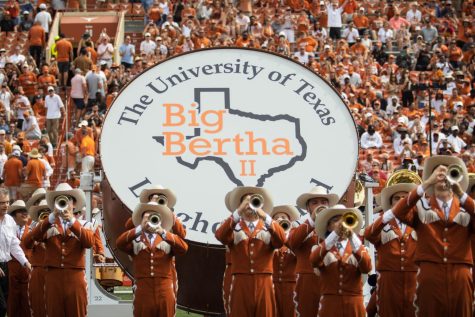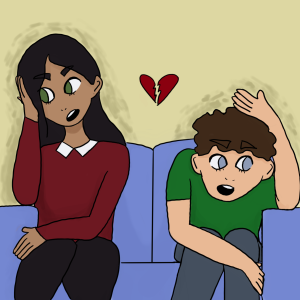‘You need to keep voting’: Austin community discusses reproductive justice’s impact on student political involvement
October 28, 2022
Following the overturning of Roe v. Wade and the abortion ban in Texas being enacted, 13% of likely voters considered abortion to be the most important voting issue to them ahead of this year’s midterm election, according to the Texas Politics Project’s October polling data.
Anika Srinath, director of the Feminist Action Project, said reproductive justice played a large role in her voting decisions, particularly for the governor’s race. She said she’s also seen other students vote in this election because the abortion ban motivated them to be politically active.
“(Reproductive justice) does encourage people to vote because it feels more directly applicable,” said Srinath, a biochemistry senior. “I think when it comes down to something like this, that is directly impacting college students. I think it really increases motivation.”
Further data polling showed that abortion is the third most important issue to voters, with 32% of voters ranking border security as the most important issue to their vote and 14% of voters selecting the state economy.
However, Joshua Blank, research director of the Texas Politics Project, said abortion has become a sideline issue rather than a major determinant in the midterm election’s narrative. In addition to voters’ stances on abortions already majorly aligning with their partisanship, he said other issues are at the forefront of most voters’ minds.
“As we enter the fall, gas prices have crept back up, economic concerns have become more prevalent after a slight decline in their overall negativity,” Blank said. “Those issues are really driving most people’s vote decisions.”
Raikolf Lopez, the president of University Democrats, said reproductive justice was on his list of priorities when he made his voting decisions. He said he’s seen an increase in club participation and daily registered voters since last year and attributes this in part to the overturning of Roe v. Wade.
“There was definitely a shift of energy after the Supreme Court case over the summer,” said Lopez, a government and sociology senior. “People were more active. … A lot more of our members are coming out and helping (with club activities). It’s just a dramatic shift of energy.”
Students can easily get stuck in their bubble when choosing which issues are most important to their vote, Srinath said, but more information should be available for students to diversify their voting interests. Win or lose, she said students should continue to find ways to stay politically active.
“I think a lot of people are being motivated to go out to vote specifically because of the overturning of Roe v. Wade,” Srinath said. “I could see how (losses) could feel really discouraging, but I think it’s important to recognize that it’s not necessarily that your vote didn’t matter at all. … You need to keep voting, and you need to keep finding other ways to be politically active.”

